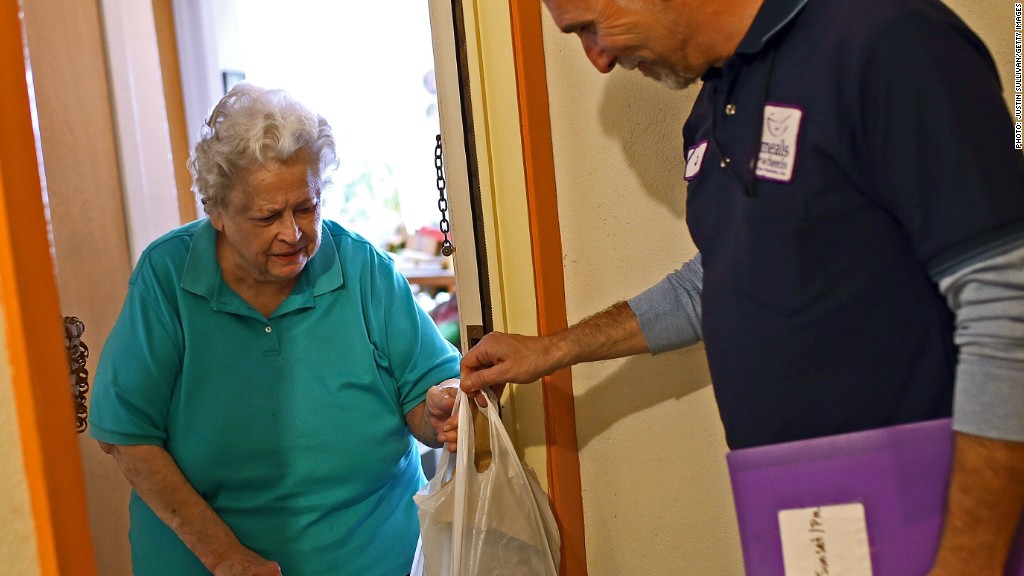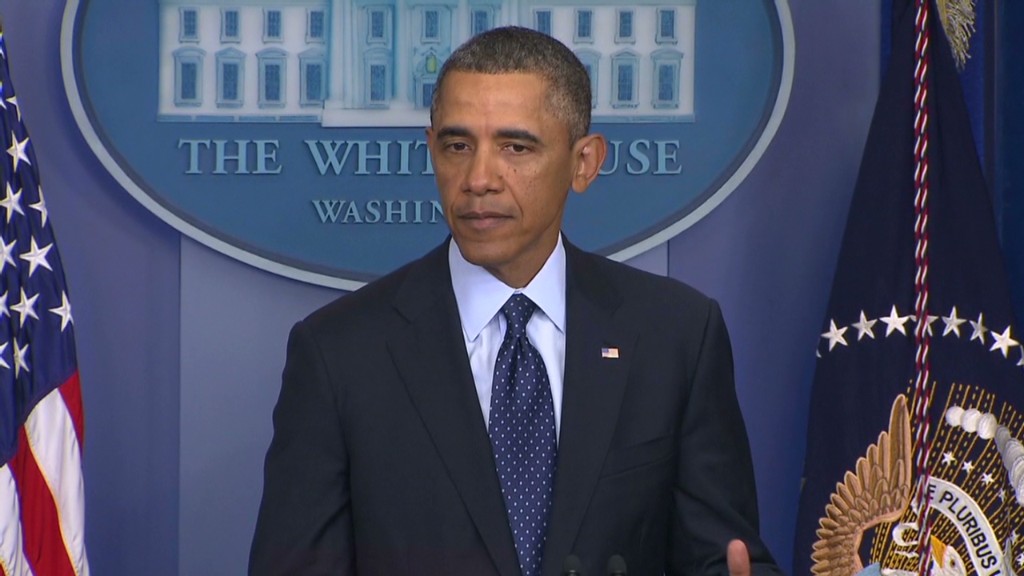
Forced federal spending cuts intended to be equal and across-the-board have lately fallen harder on the nation's poor, sick and elderly.
At the other end, the top brass of federal employees are on track to receive bonuses. And workers who impact the food and airline businesses, like meat inspectors and air traffic controllers, have managed to get a break from Congress.
But underprivileged children waiting to attend preschool, low-income seniors who rely on regular breakfasts from the government and elderly cancer patients seeking chemotherapy are among the first to really feel the impact of $85 billion in forced spending cuts that kicked in on March 1.
The cuts are affecting the poor on other fronts:
* In Michigan, 21,000 children won't get new clothes when they go back to school this fall. The state slashed a $137 clothing allowance for each child being cared for by relatives, according to MLive media group.
*In Kansas City, Kansas, 33 families that had been homeless are slated to lose housing at the Waterstone Apartments, because of cuts to the federal housing voucher programs, according to KCTV news.
* Poor people who wind up in federal court and need legal representation are waiting longer for trials, because so many public defenders are being forced to stay home, unpaid, said Federal Public Defender Lisa Peebles of Syracuse, N.Y. Her staff is taking 20 days off, some of the longest furloughs among federal employees.

"These are the things low income people need: Legal representation, health care, child care," said Professor Tim Smeeding, director of the Institute for Research on Poverty at the University of Wisconsin, Madison. "The more inequality grows, the more they'll need the exact programs we're cutting,"
Giant safety net programs like Medicaid and food stamps, as well as aid programs funded by the Veterans Administration have been protected from cuts.
But agencies and programs that are thinly funded or have no ability to shuffle money around have been hit particularly hard in the first round, said Steve Bell, senior economic policy director at the Bipartisan Policy Center. That includes those that spend most of their budget allocation on programs for the sick and poor and labor.
Related: Four federal agencies to shut down on Friday
"As time goes, you will see more of a cumulative impact," Bell said. "We call it a slow-motion train wreck."
Some programs are working hard to cushion the effect on the people. Obama administration officials had predicted the early childhood education program Head Start would cut 70,000 children from rolls. However, some of the centers that administer the program have found ways to adjust their smaller funds.
For instance, Kids Central of Norton, Va. trimmed the number of school days by 10, and cut back on school supplies and property maintenance, rather than whittling down the class size, said Darrell Edwards, executive director of that program.
Budget cuts have led to unexpected consequences for cancer-stricken seniors undergoing chemotherapy treatment. Hundreds of independent cancer clinics have either cut back, or are in the process of determining whether to treat Medicare patients because federal spending cuts trimmed reimbursement rates for pricey chemotherapy drugs.
Related: Meals on Wheels budget cuts: 'Slowly developing crisis'
The American Society of Clinical Oncology found in a recent survey of doctors and facilities that half of its members had to stop treating patients and send them to hospitals for chemotherapy.
"Having to travel just an additional 10 miles and be treated in a larger system can be a traumatic experience for these (cancer) patients," said the oncology group's president Sandra Swain, in a statement.
In coming months, forced federal spending cuts will carve a more equal, painful path, say budget experts.
Meanwhile, senior executives at the very top of the federal pay scale still may get bonuses this year, according a report released last week by Senator for Missouri Claire McCaskill.
"The idea that some of the highest paid federal government employees could be getting bonuses while others are being furloughed is outrageous," said McCaskill, a Missouri Democrat, who has crafted a bill to end such bonuses while sequester is on.


